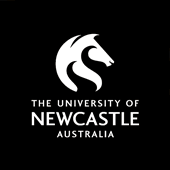Vol 1 - The papers of J.C.S. Handt, 1830-42
Introduction
This is a shortened version of a detailed biography written for the 1997 edition of the Wellington Valley Project. The full version can be viewed by clicking here.
Johann Christian Simon Handt was a product of the Basle Missionary Institute in northern Switzerland, which he entered in 1822 at the age of 28. Upon graduating in January 1827, he was allocated to the Church Missionary Society's longest and most notorious field of labour, the West Africa Mission, already the resting place of a generation of Basle's fallen brethren soldiers. Unlike his countryman, James Gunther, Handt did not seek acceptance into the Church of England, but adhered to his native faith was ordained into the united Reformed and Lutheran Church at Auggen, Baden in 1827.
Handt’s West Africa appointment was brief and turbulent. In Liberia he fell out with his colleagues and left them to form his own mission on the remote peninsular at Cape Mount, until early 1830, when he appeared at Fourah Bay College in Freetown, demanding to return to Europe on account of ill health. His arrival in London surprised the Basle Institute and earned him a rebuke from Reverend Theophilus Blumhardt (see Letter 2). The CMS, however, was impressed by his "piety, self denial and devotedness to Missionary Labours" and appointed him to the pending New Holland Mission in October 1830. Handt left Portsmouth, well ahead of schedule, on board the convict transport Eleanor on 12 February 1831.
Before departing Sydney for Wellington Valley, Handt overcame the difficulty of finding a suitable bride in the iniquitous colony when he was married, on 4 July 1832, to Mary Crook at St James Church, Sydney. Mary was the eldest of the eight daughters of William Pascoe Crook, a veteran of the London Missionary Society's 1796 Duff expedition to the South Sea Islands. Mary had only recently returned to Sydney after fourteen years in the Tahitian mission. Handt described her blandly as a "useful addition" to the new mission and frequently attributed his persistence in the face of adversity and frustration to his wife's guiding strength. She experienced four difficult confinements at Wellington Valley and suffered from an unspecified illness which seriously undermined her participation in missionary work.
Within a year at Wellington Valley, Handt and Reverend Watson were not on speaking terms. They worked independently for the next two years until March 1836, when Handt brought Mary to Sydney and informed the Society that he could not return to Wellington on account of her being "seriously indisposed" and "disordered both in body and mind". He was subsequently relocated to the Moreton Bay District, where he was installed by government as chaplain of the prison settlements at Brisbane Town and Eagle Farm. Handt continued to work sporadically with the Moreton Bay Aborigines, though the CMS sponsored him with great reservations and eventually ordered him to return to Wellington Valley in December 1840 (after the dismissal of Reverend Watson). He declined, and the CMS ceased supporting him in March 1841, though he continued to transmit annual reports relative to the condition of the Aborigines to the colonial authorities. When the Moreton Bay penal establishment closed, Handt was replaced as chaplain and returned to Sydney unemployed. In December 1844, Mary died, probably in childbirth. Their eldest daughter, Sarah, (born at Wellington valley), died three years later aged 13.
From the early 1840s, Handt in the Presbyterian Church, first at Balmain, then at Sutton Forest near Moss Vale, before moving to the Geelong/Portland district during the height of the gold-rush, where he was dismissed by members of the local Synod who thought him "unprincipled". He returning to the service of the Anglican Church and was engaged to perform itinerant work, including chaplain of the Geelong prison and hospital, barely surviving on meagre emoluments. On 7 July 1863, Handt, aged 70, died of double pneumonia at his house in Bond Street, Chillwell, in the presence of his eldest son, William. He was buried at Germantown (Grovedale).

